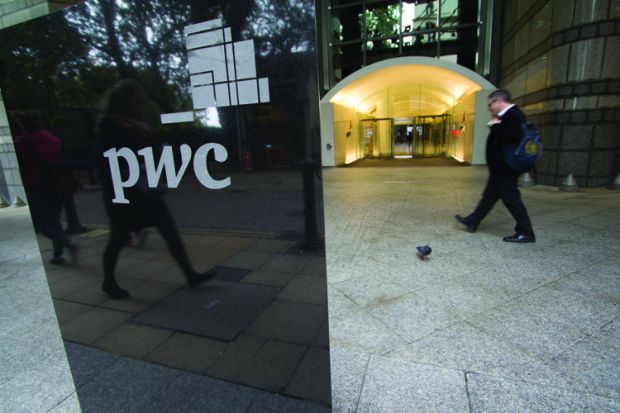Concerns about the University of Reading’s use of consultants have been raised after it spent £13.5 million on professional fees ahead of a job cuts programme.
The university paid about £8.1 million to PricewaterhouseCoopers (PwC) as part of an overall £13.5 million outlay on consultancy services in 2013-14, according to figures obtained by Reading’s University and College Union branch.
Much of the money paid to PwC centres around an 18-month review of professional and administrative staff that involved auditing and analysing the work of about 1,900 employees.
The review has led to the adoption of a new operational model in which academic support staff will remain in schools and departments but will be managed centrally.
This, the university says, will improve services and cut costs by £6 million a year by eliminating duplication of tasks and introducing more automated and self-service systems.
However, many staff have expressed “unease” at the amount spent on consultants given the business expertise on hand in the university, said Paul Hatcher, Reading’s UCU branch president.
“Other universities have done similar restructuring without using expensive consultants,” Dr Hatcher said.
“A number of staff are concerned about value for money and feel that this spending should be independently audited,” he added.
There are also doubts among staff that the new model will deliver the predicted significant savings as well as worry that it may result in the creation of more middle managers, Dr Hatcher added.
Reading expects to issue a “Section 188 notice” in the autumn, which will put many of its professional services and administrative staff formally “at risk” of redundancy, the university confirmed. There was a round of voluntary redundancies at the university in 2014-15, and another is due to start this autumn.
Compulsory redundancies have not been ruled out, although the executive board has been clear that it feels that the university’s day-to-day operating costs are too high and also that fewer support staff will be needed, a university spokesman said.
The new operational models for professional staff will be in place from summer 2016, the spokesman confirmed.
PwC, whose work has now concluded, was employed to carry out a number of tasks in addition to its work on the professional services review, the university said.
These included project management, procurement and web development in creating “end to end” digital platforms to track and record the university’s interaction with students, its new me@Reading portals for undergraduate applicants and a new university website.
The firm also provided project management and consultancy support for ongoing IT programmes and procurement changes. Figures for consultancy spending in 2014-15 are not yet available, Reading said.
The spending is part of a “£36 million efficiency and effectiveness programme for all our non-academic services, which will pay for itself fully within four years”, the Reading spokesman said.
“We are midway through one of the biggest, most significant change programmes of any UK university – which aims to put us on a competitive footing for the long term,” he said.
“This is a planned three-year programme to reduce our operating costs and increase investment in teaching, learning and research”, he added.
POSTSCRIPT:
Print headline: PwC receives £8m as job losses loom
Register to continue
Why register?
- Registration is free and only takes a moment
- Once registered, you can read 3 articles a month
- Sign up for our newsletter
Subscribe
Or subscribe for unlimited access to:
- Unlimited access to news, views, insights & reviews
- Digital editions
- Digital access to THE’s university and college rankings analysis
Already registered or a current subscriber?





